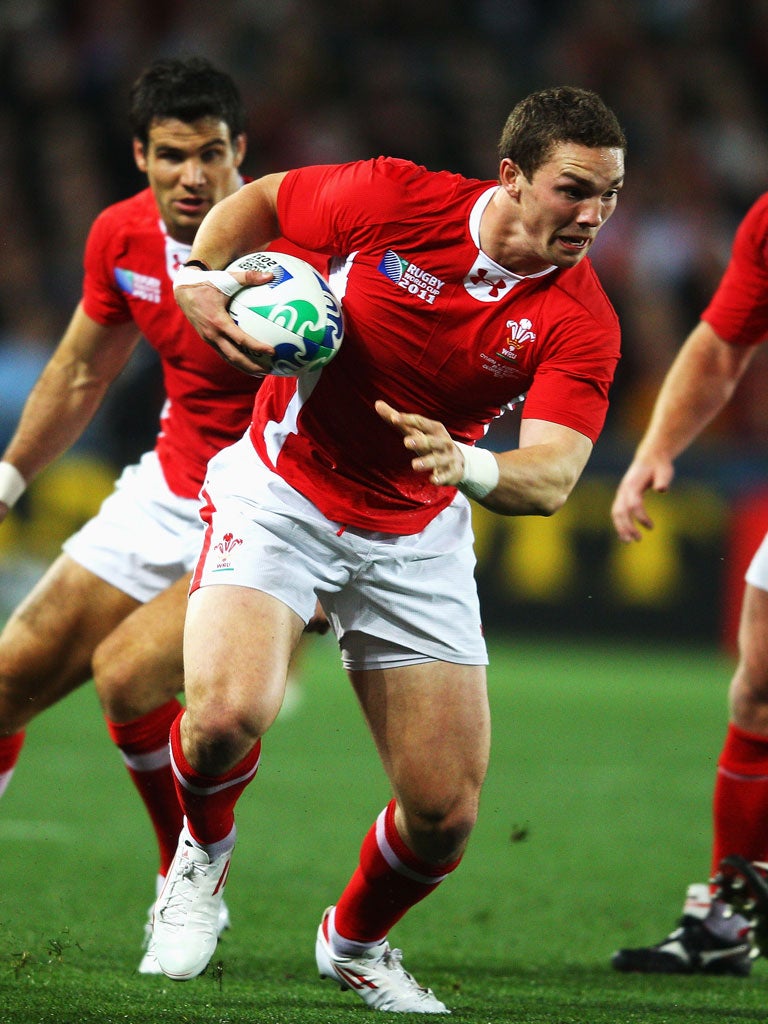James Lawton: Welsh burnt out by brilliant efforts but the future is bright

No, in the end Wales didn't make the podium of this seventh World Cup but if some lesser performers here take any satisfaction in this they not only do discredit to themselves but also the game they play.
What we saw was what happens when a team runs to its limits and then beyond so that when something that last week sprang up so naturally is suddenly just beyond your reach.
Fourth place was not what Warren Gatland's young team had in mind – even in the crippling anticlimax of semi-final defeat by a French team who almost universally had the grace to say that they were probably the luckiest team ever to finish up somewhere near the mountain top of a major tournament.
Certainly, there was no easy lifting of Welsh spirits after the 21-18 defeat by Australia yesterday but even in the seconds before the final whistle they had reminded themselves of why in these last few weeks they have attracted so much praise, even affection, and why Gatland was later able to claim that before them stretched not the pain of final defeat but the possibility of "huge development".
Wales, whose three defeats by an aggregate total of five points were inflicted by reigning champions South Africa, France and an Australian team they had beaten just twice and never in the southern hemisphere in 24 years, were indeed the glory of the competition.
Plainly beset for most of the match by the emptiness that also affected their highly gifted opponents, Wales rallied themselves for one last gesture. It comprised 30 phases of play and brought Leigh Halfpenny in for a try near the posts. It couldn't change the result but it could say that, yes, this was a team capable of remarkable achievement – a team who may also have surprised themselves as much as the rest of the rugby world.
They did it with, more than anything, an understanding that for a month or two of their lives they had to produce supreme effort, they had to run through the barriers that separate the good from the potentially great.
This may be something of a reach in assessing Wales' achievements here but then you are bound to speculate on what might have happened if Sam Warburton's campaign had not ended so shockingly and if the almost eerily composed Rhys Priestland had kept his fitness. That last question is laden with some poignancy when you consider the nightmare inherited by the man he supplanted at fly-half, the gifted James Hook.
Hook has landed a rich contract in Perpignan but, in the last moments of a tournament in which his confidence had become so shredded it seemed beyond him to perform the smallest kicking chore, his withdrawal from the action seemed less than a judgement by the coaches, more an act of mercy.
The extreme pathos is that for so long Hook had suggested himself as a potential catalyst for a new Wales, but only to discover that when it arrived, bursting with promise, it found him at his lowest ebb.
It is a matter for Hook to resolve, of course. In the meantime it is reasonable enough for Gatland and his coaches to dwell on the evidence that if Shane Williams attracted most attention, in the course of what may prove to be his last Test match, with a try of quite pragmatic brilliance, there was still plenty of evidence of a new and thrilling generation of Welsh rugby.
George North, aged 19, produced one exhibit in a moment not of impending glory but extreme pressure on the idea that Wales on this occasion might well avoid being overrun by Wallaby flair. It came when Adam Ashley-Cooper bore down on the Welsh line after a classic burst of Australian passing. North refused to accept what seemed like a formality.
He chased down Ashley-Cooper and tackled him at the line so strongly, and with such concentrated intent, the ball flew from his grasp at the very moment of grounding. It was a piece of rugby stunning in such a young player. It spoke of the core of intensity that has convinced so many hard judges in the southern hemisphere that this is indeed a serious team, one that in four years' time might well be at a point of impressive and, who knows, world-beating maturity.
Such a statement was mostly elusive yesterday. It was dog-eared by sheer effort and battle fatigue, compounded by the ending of the hope that had, just a week earlier, seemed bedded in some pretty hard realities.
Warren Gatland, naturally, insisted they will be recreated soon enough. No one was in the mood to argue, especially not when George North's tackle was still as vivid as a rocket in the night.
Subscribe to Independent Premium to bookmark this article
Want to bookmark your favourite articles and stories to read or reference later? Start your Independent Premium subscription today.

Join our commenting forum
Join thought-provoking conversations, follow other Independent readers and see their replies